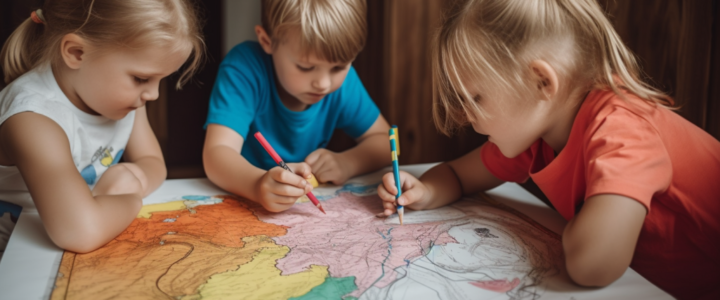In today’s fast-paced world, where children are inundated with structured activities, homework, and screen time, it has become increasingly important to emphasize the value of creative time for our young ones. Creative time refers to unstructured, imaginative play and activities that allow children to explore their creativity, think critically, and develop crucial life skills. In this article, we will delve into why giving children creative time is of paramount importance for their overall development and well-being.
- Fostering Imagination
Creative time provides children with the opportunity to let their imaginations run wild. Whether it’s building fantastical worlds with building blocks, drawing colorful masterpieces, or inventing stories with action figures, this unstructured play allows children to create and explore without limitations. By doing so, they develop the ability to think outside the box, a skill that is invaluable in problem-solving and innovation throughout their lives.
- Promoting Critical Thinking
When children engage in creative activities, they learn to think critically and make decisions on their own. Whether they are deciding which colors to use in a painting or how to build a sturdy tower with blocks, they are constantly assessing and adapting their choices. This critical thinking not only enhances their cognitive abilities but also helps them become more independent and confident in their decision-making skills.
- Building Communication Skills
Creative time often involves collaboration and communication with peers or adults. When children engage in creative group activities, such as building a fort or putting on a play, they learn to express their ideas, negotiate with others, and work as a team. These experiences are essential for developing strong communication skills that will benefit them in school, friendships, and later in their professional lives.
- Encouraging Emotional Expression
Creativity is a powerful outlet for emotional expression. Children can use creative activities like drawing, writing, or music to express their feelings, whether they are happy, sad, or anxious. This emotional release not only helps children process their emotions but also teaches them healthy ways to cope with and manage their feelings.
- Enhancing Motor Skills
Many creative activities require fine and gross motor skills. Painting, sculpting, and playing with building blocks, for example, help children develop hand-eye coordination and dexterity. These motor skills are not only important for creative endeavors but also for everyday tasks like writing, typing, and tying shoelaces.
- Reducing Stress and Anxiety
In our increasingly busy and technology-driven world, children often face stress and anxiety at a young age. Creative time serves as a therapeutic outlet that allows them to relax and de-stress. Engaging in creative activities can have a calming effect on children, helping them manage their emotions and reduce anxiety.
- Fostering a Lifelong Love of Learning
When children are given the freedom to explore their interests and passions through creative activities, they develop a love for learning. This love for learning is not confined to childhood but can become a lifelong pursuit, leading to a well-rounded and intellectually curious individual.
Conclusion
In a world that places a premium on structured activities and academic achievements, it is crucial to remember the importance of giving children creative time. Creative play and activities allow children to develop essential life skills, from critical thinking and communication to emotional expression and stress management. By nurturing their creativity, we empower children to become well-rounded individuals who are not only prepared for academic success but also equipped to face the challenges of an ever-evolving world with confidence and resilience. So, let’s encourage and cherish those moments of unstructured play and creativity in our children’s lives, for they are building the foundation for a brighter future.
